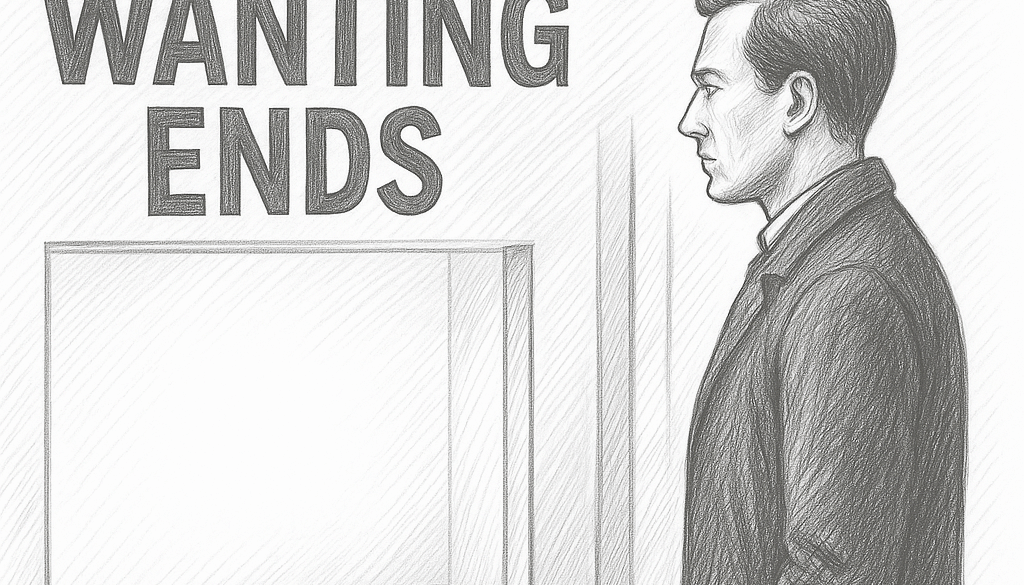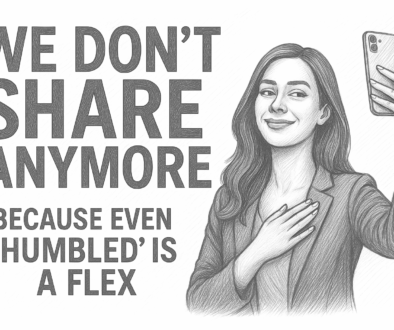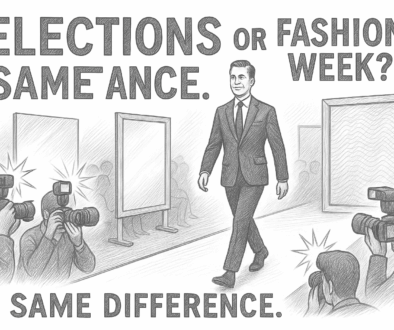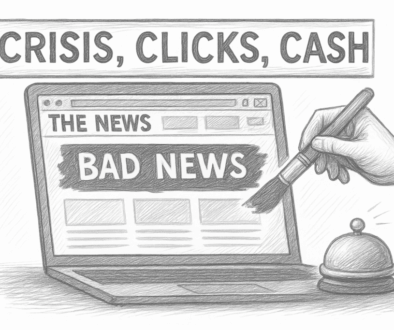The Day the Funnel Went Silent
Hey thinkers—
Let’s take a step back. Not from the screen, but from the act of wanting itself.
Because marketing has built its empire on a fragile assumption: that people will always want more.
But what if that’s ending?
The Quiet Rebellion of Not Wanting
Across Europe, Japan, and the U.S., entire demographics are opting out. They’re not just skipping ads—they’re skipping wanting.
A 2024 Deloitte study found that 62% of Gen Z actively limit their online exposure to brands, and 41% have unsubscribed from all commercial newsletters in the last year. Not out of cynicism—out of exhaustion.
This isn’t minimalism anymore. It’s existential self-defense.
When every click, ping, and push notification demands another micro-decision, refusing to want becomes an act of autonomy. Desire has become a form of labor—and many have decided to stop working.
Marketing vs. Meaning: The Machinery Breaks Down
For decades, marketing has relied on emotional engineering: highlight the lack, amplify the fear, sell the fix. It worked flawlessly—until it didn’t.
Because today’s audience is fluent in the mechanics of persuasion. They can smell intent before your campaign even loads.
We are no longer fooled by the promise of “new.” We crave peace, not progress. We want silence, not slogans.
And yet, the industry keeps screaming louder, mistaking fatigue for indifference.
The paradox? The louder brands shout, the more invisible they become
The Silent Consumer
The “Silent Consumer” is the new ghost in the machine. They don’t buy impulsively. They observe. They lurk. They save, repair, unsubscribe.
They are not brand-loyal; they are brand-aware—aware of manipulation, waste, and noise.
They exist in contradiction: still online, but emotionally logged off. They scroll, but without belief. They read, but don’t react. They see your ads, but don’t see you.
And maybe that’s the message marketers refuse to hear: you can’t convert someone who doesn’t want to play the game.

The Anti-Market Brand
The next wave of relevance won’t come from being louder or smarter—but from being quieter.
True innovation today hides behind restraint.
Consider MUD Jeans, a Dutch company that leases denim instead of selling it.
Customers return worn-out jeans for recycling, closing the loop instead of opening another transaction.
Or Hiut Denim Co. in Wales, which built its model on making fewer pairs of jeans—crafted slowly, one batch at a time—and built a cult following by doing less on purpose.
Then there’s Public Goods, which stripped away packaging design altogether to remind buyers that simplicity can be luxury.
Or Fussy, the refillable deodorant brand that turned its community into co-designers rather than consumers.
These companies don’t sell rebellion—they embody patience. They trade hype for humility, speed for trust.
They don’t push presence; they invite it.
They are not anti-business—they’re post-business. Brands that sell by refusing to manipulate, that build loyalty by staying still.
Because when a brand respects space, it creates gravity. Maybe the future isn’t about attention—it’s about absence.
Economists already talk about the attention economy as oversaturated. What’s next is the Presence Economy—where the rarest commodity isn’t your time, but your trust.
Being present doesn’t mean being everywhere. It means being real, intentional, and optional.
You can’t retarget someone who finds peace in being unreachable.

The Death of the Funnel, The Rise of the Void
Traditional marketing funnels assume a restless customer: Awareness → Interest → Desire → Action.
But what happens when the system meets stillness?
Today’s consumers are walking away from funnels entirely. They want narratives without hooks, connection without conversion, stories without scarcity.
They don’t need another thing. They need space to breathe.
And the brands that understand this won’t vanish—they’ll endure. Because silence, too, can sell.
Maybe the next frontier isn’t persuasion—it’s permission.
Permission to stop shouting.
Permission to exist without expectation.
Permission to mean something only when it’s needed.
That’s not weakness. That’s evolution.
The most powerful message a brand can send in 2025 might simply be:
“We’re here when you need us—and it’s okay if you don’t.”
Until next time, stay real.
Alex
🚀 At Kredo Marketing, we help brands evolve beyond noise — building clarity, empathy, and lasting trust in a world that’s tired of being sold to.
💬 Let’s create presence, not pressure.



